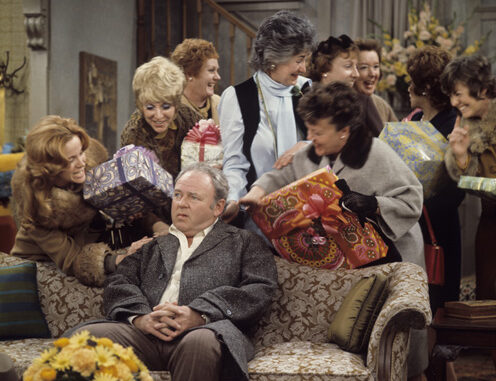
As All in the Family celebrates its 50th anniversary, its cultural significance is more relevant than ever. In a 2019 remake of an original episode, ABC brought back the Bunker family dynamic, with Woody Harrelson and Marisa Tomei stepping into the roles of Archie and Edith. The episode, set in 1976, tackled contentious topics like the Vietnam War, highlighting how the show masterfully addressed social issues in its time.
Archie Bunker, the quintessential “angry white man,” emerged as a character that challenged viewers. His blunt conservatism and ingrained prejudices represented a demographic often ignored on television. Yet, despite his flaws, he exhibited a hidden kindness, making him a complex figure rather than a one-dimensional villain. Carroll O’Connor’s portrayal allowed audiences to empathize with a character steeped in bigotry, demonstrating the potential for growth and understanding.
Norman Lear and Bud Yorkin, the creators of the show, used humor as a lens to examine America’s evolving landscape during the 1970s. By integrating current events—like the Vietnam War and the Watergate scandal—All in the Family reflected societal rifts, addressing issues of race, gender, and politics in a way that was groundbreaking for its time.
While the context may have changed, the themes of intolerance, social conflict, and the quest for understanding remain strikingly relevant today. Just as Archie’s interactions with his liberal son-in-law Mike and his feminist daughter Gloria sparked debate in their household, modern families still navigate similar discussions.
Ultimately, All in the Family transformed American television by paving the way for diverse storytelling and working-class representation. Its humor and poignant messages continue to resonate, encouraging audiences to reflect on the complexities of societal issues and the importance of compassion in bridging divides.
